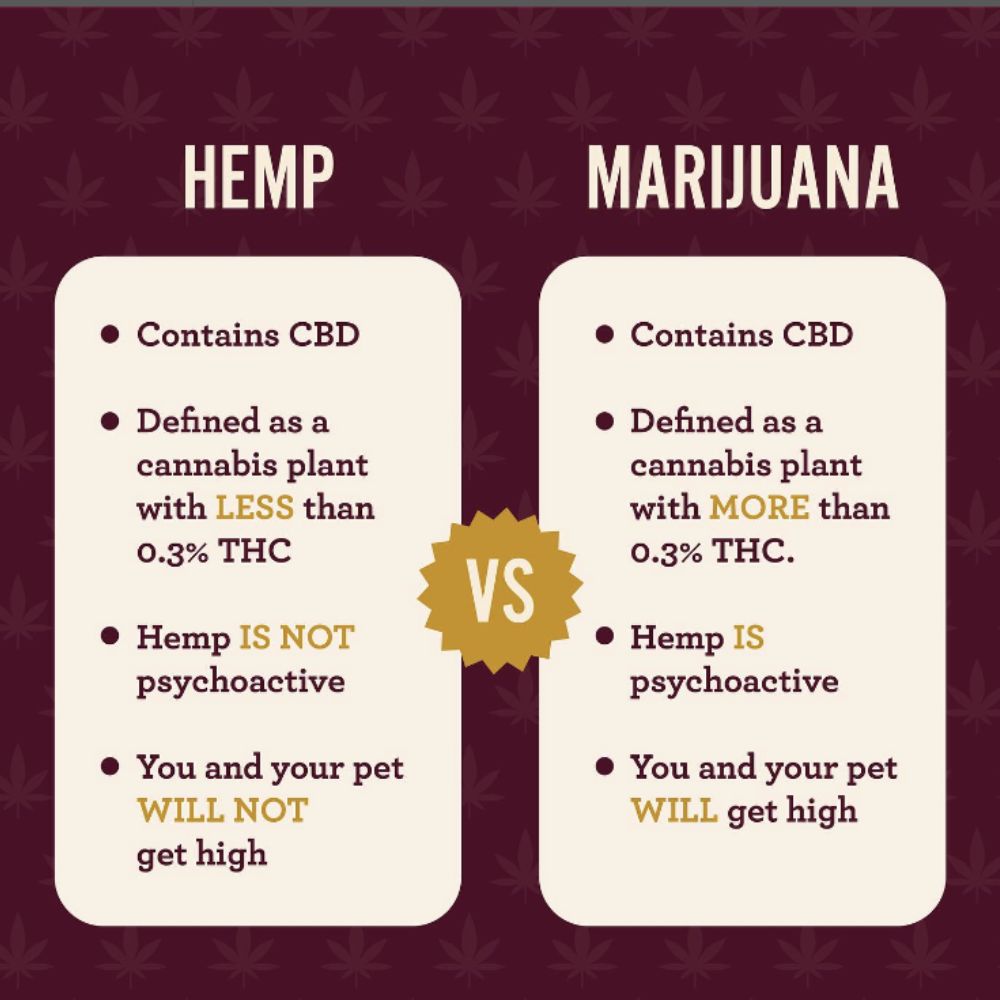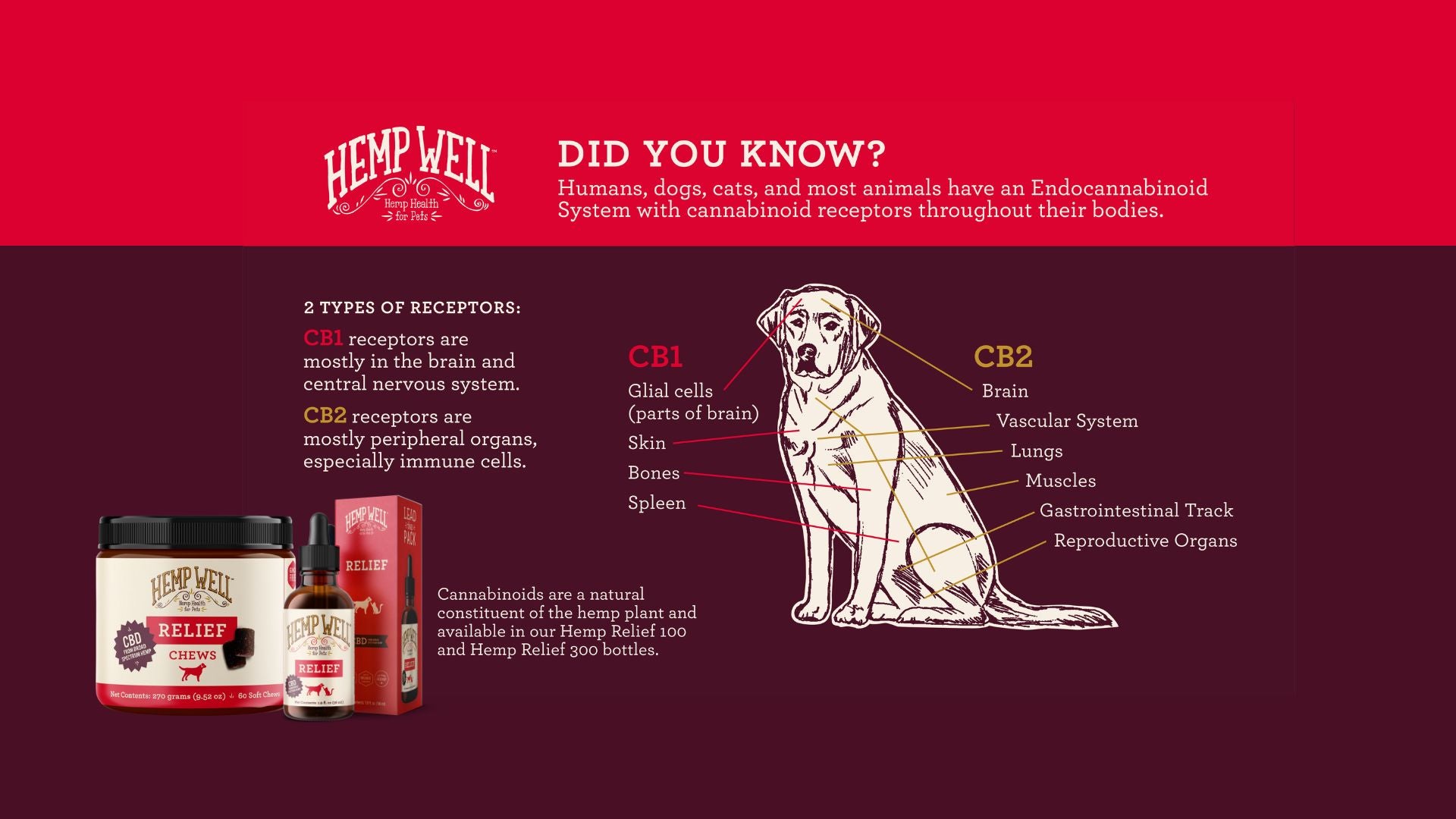How CBD Can Improve Your Dog's Quality of Life

In recent years, CBD (cannabidiol) has gained significant attention for its potential health benefits, not only for humans but also for our beloved canine companions. If you're a pet owner looking to enhance your dog's well-being naturally, you might be curious about how CBD can positively impact your furry friend's quality of life. In this comprehensive guide, we'll delve into the world of CBD for dogs, exploring its potential benefits, safety considerations, and how to choose the right CBD products to help your canine companion thrive.
Understanding CBD for Dogs
CBD, short for cannabidiol, is a naturally occurring compound found in the Cannabis sativa plant. It is one of over 100 different cannabinoids present in cannabis, and it has been the subject of significant research and attention in recent years. Unlike its well-known cousin, tetrahydrocannabinol (THC), CBD is non-psychoactive, which means it doesn't produce the "high" or euphoric effects typically associated with cannabis use.
The Origins of CBD:
The discovery of CBD dates back to the 1940s when Dr. Roger Adams and his team successfully isolated this cannabinoid from the cannabis plant. However, its true potential and medicinal properties have only recently come to the forefront.
CBD is found in both hemp and marijuana plants, but the concentration of CBD varies significantly between the two. Hemp plants contain a higher amount of CBD and a very low level of THC, making them the primary source for CBD extraction. In contrast, marijuana plants have a higher THC content.
Non-Psychoactive Nature:
One of the most significant distinctions between CBD and THC is their psychoactivity or lack thereof. THC is responsible for the psychoactive effects of cannabis, leading to altered perception, euphoria, and impairment of cognitive functions.
CBD, on the other hand, does not bind strongly with the cannabinoid receptors in the brain responsible for these psychoactive effects. This means that when you use CBD, you won't experience the "high" associated with marijuana use. Instead, CBD interacts with other receptors in the body, such as the endocannabinoid system (ECS), to produce a range of potential therapeutic effects without altering your state of mind.
As we delve deeper into the world of CBD for dogs, it's essential to understand this non-psychoactive nature, which makes it a safe and promising option for improving your canine companion's quality of life. In the following chapters, we will explore how CBD interacts with the ECS, its potential benefits for dogs, and much more.
CBD vs. THC: Clarifying the differences between CBD and THC and why CBD is safer for dogs.

The Endocannabinoid System (ECS): Explaining how dogs and humans share a similar ECS, making CBD effective for both.

The Benefits of CBD for Dogs
In the world of cannabis and its various compounds, two cannabinoids often take the spotlight: CBD (cannabidiol) and THC (tetrahydrocannabinol). While they both originate from the same Cannabis sativa plant, CBD and THC are vastly different in their effects, legality, and safety, especially when it comes to our four-legged friends.
CBD vs. THC: The Basics
Chemical Structure:
CBD (Cannabidiol): CBD is a non-psychoactive cannabinoid found in cannabis plants. It has a similar chemical structure to THC but lacks the psychoactive properties.THC (Tetrahydrocannabinol): THC is the primary psychoactive cannabinoid in cannabis. It's responsible for the "high" associated with marijuana use.
Psychoactive Effects:
-
CBD: As mentioned earlier, CBD does not produce any psychoactive effects. It does not alter one's state of mind or consciousness.
-
THC: THC is known for its psychoactive properties, leading to altered perception, euphoria, and impairment of cognitive functions.
Why CBD Is Safer for Dogs:
When considering CBD for your canine companion, it's essential to understand why it is a safer option compared to THC:
Non-Psychoactive: CBD does not induce a "high" in dogs or humans, making it a safer choice for pet consumption. Your dog can experience potential therapeutic benefits without any altered state of mind.Minimal Side Effects: While CBD can have mild side effects in some dogs, such as drowsiness or diarrhea, they are generally well-tolerated and rarely severe. THC, on the other hand, can lead to more significant adverse reactions, including anxiety, paranoia, and even toxicity.
Medical Benefits: CBD is being explored for its potential therapeutic benefits in dogs, including pain relief, anxiety management, and anti-inflammatory properties. THC is not commonly used for medicinal purposes in pets due to its psychoactive nature.
Safe Dosing: With CBD, it's easier to control and administer precise doses to your dog, ensuring their safety and well-being. THC dosing is far riskier and can lead to overdosing if not carefully monitored.
In summary, while both CBD and THC are cannabinoids derived from the cannabis plant, CBD stands out as a safer and more practical choice for improving your dog's quality of life. Its non-psychoactive nature, legal status, minimal side effects, and potential therapeutic benefits make it a promising option for pet owners seeking natural remedies for their furry companions.
- Pain and Inflammation Management: How CBD may alleviate pain and reduce inflammation in dogs, particularly those with arthritis.
- Anxiety and Stress Relief: Exploring how CBD can help anxious or stressed dogs find calm and relaxation.
- Improved Sleep: Discussing how CBD may contribute to better sleep quality for dogs.
- Enhanced Appetite: Explaining how CBD can stimulate appetite in dogs who may be experiencing a loss of interest in food.
Safety Considerations
- Choosing High-Quality CBD Products: Tips on selecting reputable CBD products that are safe for your dog.
- Dosage Guidelines: Providing general guidelines for dosing CBD based on your dog's size and condition.
- Possible Side Effects: Addressing potential side effects and when to consult a veterinarian.
When considering CBD for your dog, selecting high-quality CBD products is of utmost importance to ensure your furry friend receives safe and effective treatment. The market is flooded with various CBD options, making it essential to know how to differentiate between reputable products and those of lesser quality. In this chapter, we'll provide you with valuable tips to guide you in choosing the best CBD products for your dog's well-being.
Source of CBD:
- Hemp-Derived CBD: Look for products that are derived from industrial hemp plants. Hemp-derived CBD typically contains less than 0.3% THC, making it safe and legal for your dog.
Third-Party Lab Testing:
- Certificates of Analysis (COA): Reputable CBD companies provide third-party lab testing results for their products. These COAs verify the CBD content, THC levels, and the absence of harmful contaminants like heavy metals, pesticides, and solvents. Always check for COAs before purchasing.
Full-Spectrum vs. Isolate:
-
Full-Spectrum CBD: Full-spectrum products contain a wide range of cannabinoids, terpenes, and other beneficial compounds found in the hemp plant. These compounds work together synergistically, known as the "entourage effect," potentially enhancing the therapeutic benefits.
-
CBD Isolate: Isolate products contain pure CBD without other cannabinoids or terpenes. While they can be effective, they may lack the added benefits of the entourage effect.
Organic and Non-GMO:
-
Organic: Choose CBD products made from organically grown hemp. Organic cultivation reduces the risk of exposure to pesticides and chemicals, ensuring a safer product for your dog.
-
Non-GMO: Non-genetically modified (GMO) hemp is preferable, as it ensures a more natural and wholesome source of CBD.
Extraction Method:
- CO2 Extraction: The supercritical CO2 extraction method is considered the gold standard for producing high-quality CBD. It preserves the integrity of the cannabinoids and eliminates the need for harmful solvents.
Proper Dosage Information:
- Clear Dosage Instructions: Reputable CBD products provide clear dosage instructions based on your dog's weight and condition. Always follow these guidelines to ensure the correct amount is administered.
Product Form:
-
Tinctures: CBD tinctures are versatile and easy to administer. They allow for precise dosing and can be mixed with your dog's food or treats.
-
Treats: CBD-infused treats are a convenient way to give your dog their daily dose of CBD. Ensure the treats are of high quality and accurately labeled.
Reviews and Recommendations:
-
Customer Reviews: Read reviews from other pet owners who have used the product. Their experiences can provide valuable insights into its effectiveness.
-
Veterinarian Recommendations: Consult with your veterinarian for product recommendations and dosing advice. They can offer guidance tailored to your dog's specific needs.
Transparent Brand Information:
- Company Transparency: Reputable CBD companies are transparent about their sourcing, manufacturing processes, and quality control measures. Check the company's website for this information.
By following these tips and conducting thorough research, you can confidently choose high-quality CBD products that are safe and effective for your dog. Remember that every dog is unique, so it's essential to start with a low dose and monitor your pet's response closely when introducing CBD into their routine.
How to Introduce CBD to Your Dog
- Gradual Introduction: The importance of introducing CBD slowly to monitor your dog's response.
- Observation and Adjustment: The need for careful observation and potential adjustments to dosage.
- Consulting a Veterinarian: When and why it's crucial to consult with a veterinarian before starting CBD treatment.
Real-Life Success Stories
- Testimonials: Sharing real stories of dog owners who have seen positive changes in their pets after using CBD.
- Case Studies: Highlighting specific cases where CBD played a significant role in improving a dog's quality of life.
Finding the Right CBD Products
- Broad or Full-Spectrum vs. Isolate: Explaining the differences between full-spectrum and isolate CBD products.
- Different Forms: Overview of various CBD product forms, including tinctures, treats, and capsules.
- Reading Labels: How to read and understand CBD product labels to make informed choices.

A Brighter, Healthier Future for Your Dog
In closing, this guide aims to empower pet owners with knowledge about the potential benefits of CBD for dogs and how it can enhance their quality of life. When considering CBD as part of your dog's wellness routine, remember to consult with a veterinarian, choose high-quality products, and monitor your dog's progress closely. With the right approach, CBD can contribute to a happier, healthier life for your canine companion.











